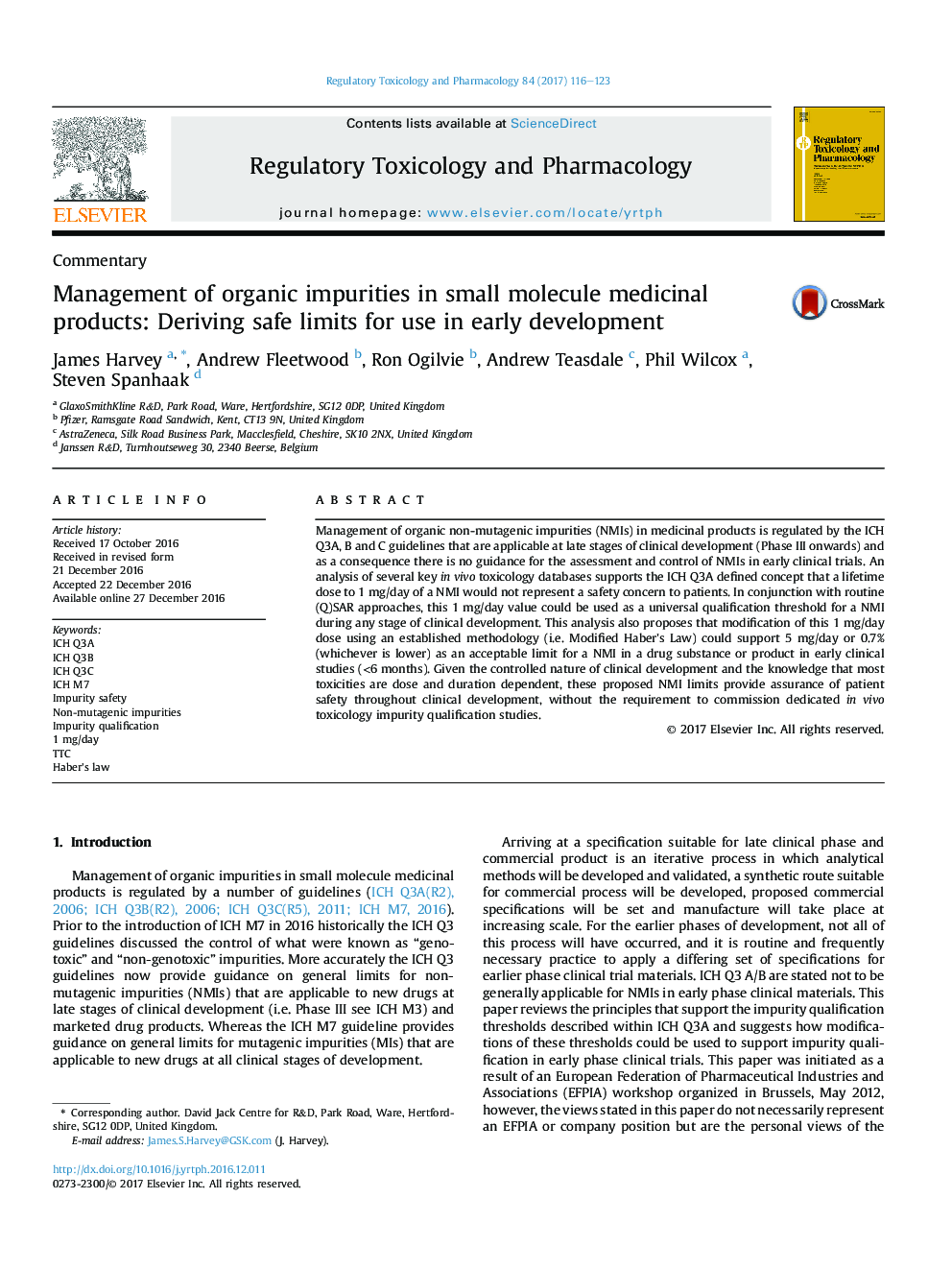| کد مقاله | کد نشریه | سال انتشار | مقاله انگلیسی | نسخه تمام متن |
|---|---|---|---|---|
| 5561394 | 1562119 | 2017 | 8 صفحه PDF | دانلود رایگان |
- Analysis of key in vivo toxicology databases provides validation of the 1 mg/day ICH Q3A drug impurity qualification threshold.
- Coupled with (Q)SAR analysis an impurity qualification threshold of 1Â mg/day could be applicable at any stage of development.
- Application of modified Haber's Law supports higher (â¤5 mg) impurity limits in early stages of drug development.
- The approach addresses a gap in the impurity guidelines and could reduce the number of impurity qualification toxicology studies.
Management of organic non-mutagenic impurities (NMIs) in medicinal products is regulated by the ICH Q3A, B and C guidelines that are applicable at late stages of clinical development (Phase III onwards) and as a consequence there is no guidance for the assessment and control of NMIs in early clinical trials. An analysis of several key in vivo toxicology databases supports the ICH Q3A defined concept that a lifetime dose to 1 mg/day of a NMI would not represent a safety concern to patients. In conjunction with routine (Q)SAR approaches, this 1 mg/day value could be used as a universal qualification threshold for a NMI during any stage of clinical development. This analysis also proposes that modification of this 1 mg/day dose using an established methodology (i.e. Modified Haber's Law) could support 5 mg/day or 0.7% (whichever is lower) as an acceptable limit for a NMI in a drug substance or product in early clinical studies (<6 months). Given the controlled nature of clinical development and the knowledge that most toxicities are dose and duration dependent, these proposed NMI limits provide assurance of patient safety throughout clinical development, without the requirement to commission dedicated in vivo toxicology impurity qualification studies.
Journal: Regulatory Toxicology and Pharmacology - Volume 84, March 2017, Pages 116-123
